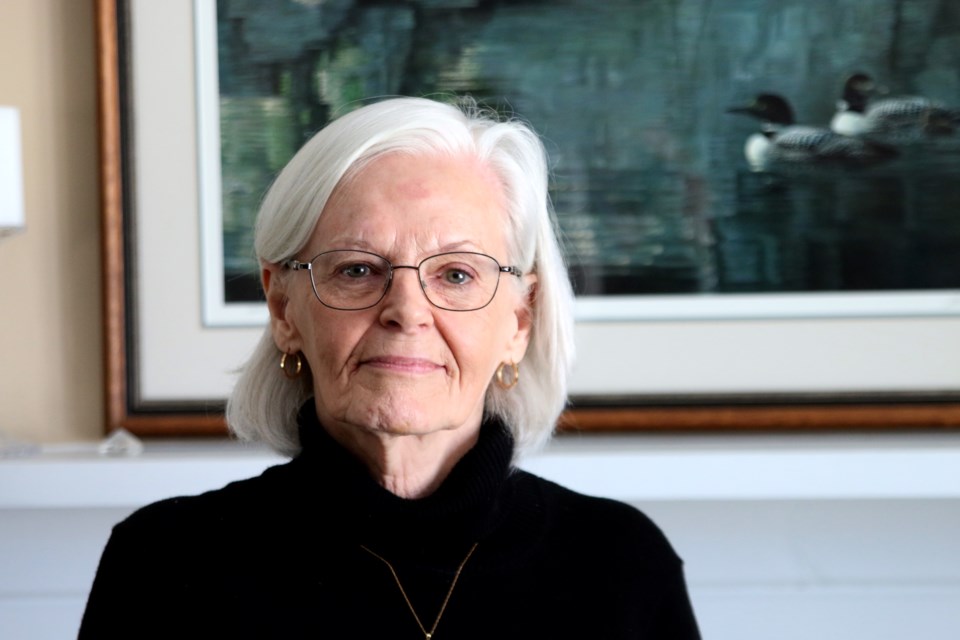THUNDER BAY - After watching both her younger sister and mother suffer before death, Sheila Noyes has dedicated her life to ensuring those in great pain have a right to medically end their lives.
With the tabling of Bill C-7, which will result in significant changes to right to die legislation in Canada, Noyes said it might finally provide Canadians facing these kinds of decisions with the compassion they deserve.
“Right now, Bill C-7, should it pass, and we fervently hope that they will, will give the most incredible peace to Canadians who are suffering,” she said. “I can’t tell you the peace I felt when I waded into it and made my phone call to Patty Hajdu to ask for clarification. Canadians will see the circle of compassion has been drawn wider.”
Noyes, who is a member of Dying with Dignity Canada, has been advocating for medically assisted death after losing her sister to breast cancer in 1991. The cancer had spread to her sister’s spinal cord, resulting in paralysis, loss of speech, and she died of suffocation. Noyes also watched her mother suffer after being locked in from a stroke.
The Canadian government passed medically assisted dying legislation in 2016. In that time, more than 13,000 Canadians have died using medical assistance, including 64 people in the Thunder Bay District.
But Noyes said the original legislation had limitations, including restricting those who were eligible based on a reasonably foreseeable death and competency.
Bill C-7, which was tabled last Monday, addresses those concerns raised by proponents of medically assisted death.
“We know that for every person who received a medically assisted death, there were many who were denied,” Noyes said. “There were two main reasons why they were denied. One is that natural death wasn’t considered reasonably foreseeable. The other is they lost competency and could not give consent just before the procedure was administered.
“Bill C-7 addresses both of those. The eligibility criteria remains the very same with the vital exception that natural death does not have to be reasonably foreseeable.”
The eligibility to qualify for medically assisted death remains the same, including the patient being in an advanced stage of decline, suffering both physically and mentally, and the request must always be initiated by the patient.
The bill is also known as Audrey Parker’s amendment, named after a patient who was diagnosed with breast cancer that spread to her bones and brain. She wanted to spend one more Christmas with her family, but she knew by that time she would lose the capacity to consent to a medically assisted death so she chose to die in November.
“They have removed the requirement that there must be a 10 day reflection period,” Noyes said. “That was a cruel thing to do. So a Canadian would apply and be approved and then they would say: ‘you have to think about it for 10 days.’ That is just heartbreaking.”
A second consent would also be waived, meaning the patient is no longer required to give consent before death is initiated.
“That has been waived for people have been assessed and approved and that is hugely compassionate,” Noyes said.
The government will receive reports from the Council for Canadian Academics that will look at issues related to mature minors, advanced requests, and where a mental disorder is the sole reason for the request.
Noyes said she remains optimistic that Bill C-7 will pass and become law because she feels the federal government has listened to Canadians.
“It is not just compassionate, it is keeping in line with the Canadian Charter of Rights and Freedoms,” she said. “It must align with that. That provides for life, liberty, security of the person, and equal treatment under law.”
